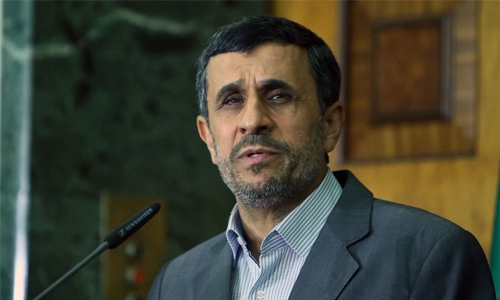Iran’s Ahmadinejad rules out third presidential bid
Tehran : Iran's controversial former president Mahmoud Ahmadinejad, whose two-term rule saw the country increasingly isolated internationally, has said he will not stand again following advice from supreme leader Ayatollah Ali Khamenei.
"In following the will of the great leader of the revolution, I have no plans to be present in next year's presidential competitions," he wrote in a letter to Khamenei made public by Iranian media on Tuesday.
Ahmadinejad's stand-down came a day after Khamenei, in cautiously worded remarks and without naming the ex-president, indicated that his standing again would be a mistake.
"A certain person came to me and I told him not to do a certain thing, believing it would be to the benefit of both the person himself and the country," Khamenei said.
He implied that an Ahmadinejad candidacy would have a polarising effect that would "damage the country".
Ahmadinejad, who was president between 2005 and 2013, said he had met Ayatollah Khamenei on August 30.
"I will forever remain the small soldier of the revolution and a servant of the people," he concluded in his letter.
Ahmadinejad had made numerous public appearances in recent months, leading to speculation that he was planning a comeback in next May's presidential election.
The news that he is not is likely to reassure moderate incumbent Hassan Rouhani, who is expected to stand for a second term in the May 19 vote.
Ahmadinejad left office in August 2013 after two turbulent four-year terms, leaving the Islamic republic divided domestically, isolated internationally and struggling economically.
His inflammatory rhetoric -- particularly over Iran's nuclear programme and hostility towards Israel -- was blamed for deepening tensions with the West and bringing down economic sanctions thatIran struggled for years to lift.
But Ahmadinejad's populist approach and humble roots mean that he remains a popular figure among poorer sections of society.
Rouhani, who oversaw a deal with world powers to end sanctions in exchange for curbing Tehran's nuclear programme, faces mounting pressure from conservatives who say the accord has brought few benefits.
Related Posts

